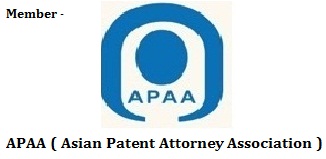Time waits for no one: Delhi High Court rules on the mandatory nature of the trade mark opposition timelines

Introduction
Trademark opposition proceedings serve as crucial mechanisms for safeguarding intellectual property rights and ensuring equity in the commercial area. A recent landmark case, Sun Pharma Laboratories Ltd v. Dabur India Ltd. & Anr., adjudicated by the Hon’ble Delhi High Court, sheds light on the intricate dynamics of trademark disputes and emphasizes the paramount importance of adhering to procedural norms and timelines. In this comprehensive analysis, we delve into the legal intricacies, court proceedings, and broader implications of this case in respect of trademark opposition proceedings.
Trademark Opposition Proceedings
Trademark opposition proceedings are governed by the provisions of the Trademarks Act, 1999, and the Trade Mark Rules, 2017. These proceedings offer aggrieved parties an opportunity to contest the registration of a trademark that potentially infringes upon their existing rights. At the core of these proceedings are stringent time period for filing evidence and serving documents on opposite parties, thereby ensuring fairness and expeditious resolution of disputes.
Case Background
The case of Sun Pharma Laboratories Ltd v. Dabur India Ltd. & Anr. emanated from Sun Pharma’s opposition to Dabur’s trademark application for “Dabur Glucorid KP (Label)” in class 05. Sun Pharma initiated the opposition under the old rules, wherein the responsibility for serving evidence on the opposing party rested with the Registry. Despite Sun Pharma complying with the statutory deadline for filing evidence, a delay of 3 days in serving the evidence on Dabur, giving rise to contentious legal proceedings. Following this delay, Sun Pharma sought an extension of time and requested the learned Registrar to consider its evidence on record. However, the Learned Registrar rejected Sun Pharma’s request, citing the non-extendibility of the time limit prescribed by the rules, the evidence served on Dabur is time-barred and consequently the opposition deeming the opposition abandoned.
Sun Pharma, aggrieved by the ruling, filed an appeal to the High Court. With regards to Sun Pharma’s plea for an extension of time, the Court affirmed that the time limits prescribed by the rules are mandatory in nature and must be strictly complied with. Furthermore, the Court affirmed that neither the former Trade Marks Rules 2002 nor the Trade Marks Rules 2017 grant the Trade Marks Registrar discretion to extend this extension.
Legal Framework and Court Proceedings
At the crux of the legal dispute was the question of whether the delay in serving evidence warranted the abandonment of Sun Pharma’s opposition. The Delhi High Court strictly analysed Rule 50 of the Repealed Rules or Trademarks Rules, 2002, which provides the procedure and time limit for filing evidence in support of opposition. Emphasizing the mandatory nature of these time limit, the court ruled out any discretion to extend deadlines unless specifically directed by the Registrar.
It clarified that under both the repealed and subsequent rules, the Registrar lacked the discretion to grant extensions. The interpretation of Rule 50 emphasized the importance of procedural fairness and efficiency in trademark disputes, ensuring that the trademark registration process remains unaffected by undue delays.
Implications for Trademark Opposition Proceedings
The ramifications of the Court’s ruling extend far beyond the confines of Sun Pharma Laboratories Ltd. v. Dabur India Ltd. & Anr. The case sets a precedent for future trademark opposition proceedings, establishing a framework of unwavering adherence to prescribed timelines and procedural requirements.
Trademark owners are now compelled to exercise extensive vigilance in complying with the timelines provided in the Trademarks Act and Rules. Non-compliance may lead to adverse consequences, including the rejection of oppositions and potential forfeiture of substantive rights. The ruling emphasizes on trademark owners and applicants to adopt a diligent view to ensure the timely submission of evidence and compliance with procedural requirements.
Furthermore, the ruling emphasizes the role of the Registrar of Trade Marks in governing trademark opposition proceedings and ensuring compliance with statutory requirements. While the Registrar’s discretion in granting extensions may be curtailed, their role in facilitating fair and efficient dispute resolution remains pivotal.
Conclusion
The judgement exemplifies the significance of trademark opposition proceedings in safeguarding intellectual property rights and promoting fairness in the marketplace. The judgement also emphasizes upon the necessity for strict adherence to prescribed timelines and procedural requirements, thereby fostering transparency, efficiency, and confidence in the trademark system.
The present article is written by our Associate, Ms. Neha Singh. The views and opinions expressed in this article are those of the authors and do not necessarily reflect the official policy or position of any agency of the Indian government. Examples of analysis performed within this article are only examples. They should not be utilized in real-world analytic products as they are based only on very limited and dated open source information. Assumptions made within the analysis are not reflective of the position of any Indian government State.


